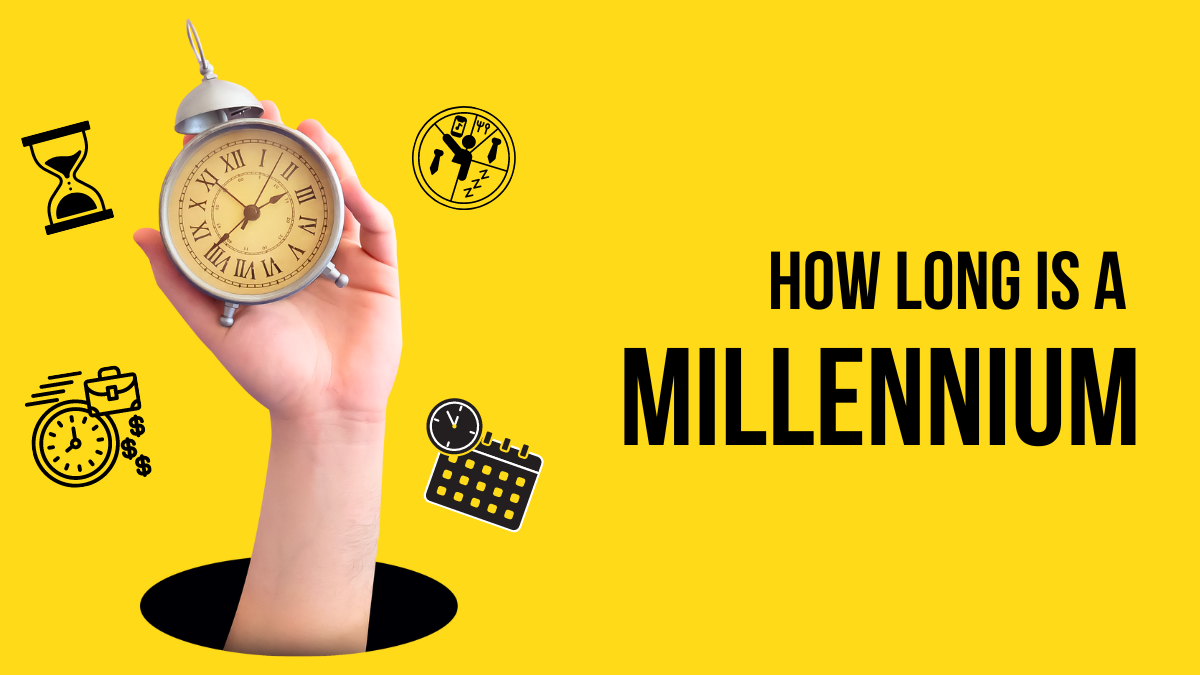When you hear the word “millennium,” do you automatically think of 1,000 years? The significance of the millennium goes far beyond its numerical worth as a measure of time. The concept of a millennium, its historical and cultural significance, and the effect it has had on human life and society will all be discussed in this article.
Definition of a Millennium
It comes from the Latin mille, which means thousand, and the word annum, which means year. It’s the equivalent of a thousand years. Numerous disciplines, from history to religion to science, employ this measurement of time to establish benchmarks or examine broader patterns.
Origin and History
Ancient cultures like the Babylonians and the Greeks employed thousand-year periods as a standard way to count the years. In contrast, the concept of a millennium in the modern era is frequently linked to religion and the Christian tradition, and more especially to the hope for the return of Christ and the creation of God’s millennial kingdom.
The Duration of a Millennium
One thousand years, or 10 centuries, is a millennium. It starts on January 1 of the year ending in “000” and continues until December 31 of the year ending in “999.” The previous one, for instance, started on January 1, 1000 and ended on December 31, 1999. On January 1, 2000, the new millennium began, and it will finish on December 31, 2999.
Cultural and Religious Significance
There is widespread cultural and theological importance attached to the idea of a millennium. The “millennial reign” of Christ is looked forward to with great hope and anticipation in Christianity. The Buddhist and Hindu conceptions of cosmic cycles and very lengthy epochs are just two examples.
The Y2K Bug
There was a problem at the turn of the millennium called the Y2K bug or the “Millennium Bug.” The problem originated in the fact that many computer programs only utilize two digits to denote years. A lot of people were worried that this problem would trigger major disruptions and maybe bring down essential services. Thankfully, big mishaps were avoided because of meticulous planning and regular updates.
Scientific and Technological Advancements
The scientific and technical progress made in the last millennia has been nothing short of revolutionary. Humanity has achieved tremendous strides in different sectors, defining the world we live in today, from the Renaissance to the Industrial Revolution to the Information Age to the contemporary era of artificial intelligence and space exploration.
Notable Events in the Last Millennium
There were several pivotal moments throughout the last millennia. Every historical period, from Christopher Columbus’s explorations to the Renaissance, the Reformation, the World Wars, and the Digital Revolution, has left a lasting impression on modern culture.
Predictions for the Next Millennium
It may be difficult to guess what will happen in the next thousand years, but we can certainly look forward to more progress in the fields of science, technology, and social organization. Incredible discoveries and revolutions may be possible in the next one thanks to continuous developments in renewable energy, genetic engineering, space exploration, and artificial intelligence.
Impact on Human Lives and Society
The passing of a millennia has significantly altered human existence and social structures. Our ability to look back, draw wisdom from the past, and plan for the future has been greatly enhanced. Civilizations have risen and fallen, cultures have changed, and human knowledge has advanced over the millennia, leaving a legacy for the next generation.
Conclusion
In conclusion, a it is a period of 1,000 years that is significant in many different ways, including culture, religion, and history. It’s a chance to look back on humanity’s achievements and forward to what the future may hold. Let us, as we make our way through this millennia, celebrate our previous successes and work tirelessly to build a brighter future.
FAQs
When did the current millennium begin?
The current millennium began on January 1, 2000.
How many years are there in a millennium?
A millennium comprises 1,000 years.
Which religions attach significance to the concept of a millennium?
Christianity, Buddhism, and Hinduism are among the religions that attach significance to the concept of a millennium.
Did the Y2K bug cause any major disruptions?
Thanks to extensive preparations and updates, the Y2K bug did not cause any major disruptions.
What can we expect in the next millennium?
The next millennium holds the potential for further advancements in science, technology, and society, with possibilities ranging from renewable energy to artificial intelligence.











